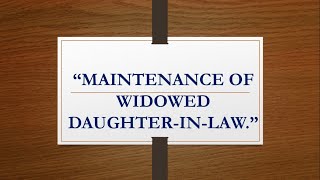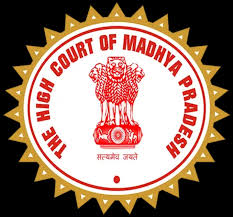K. Raviraja Pandian, J.@mdashBy formulating the following question of law:
Whether, on the facts and in the circumstances of the case, the Income Tax Appellate Tribunal was right in holding that the provisions of Section 50C of the Income Tax Act (hereinafter referred to as the Act) were not applicable in the matter of computation of the assessee''s income from the sale of the property at Greams Road and the sale consideration should be taken only at Rs. 5 crores as shown in the sale deed?
the Revenue has come up by way of an appeal u/s 260A of the Act before this court against the order of the Tribunal dated May 22, 2009, made in I.T.A. No. 1307/Mds/2008 relating to the assessment year 2004-05.
2. The minimum facts for the disposal of the appeal as culled out from the statement of facts contained in the memorandum of grounds are as follows:
3. The assessee-company filed its return of income for the assessment year 2004-05 on November 1, 2004, admitting an income of Rs. 78,23,894 and claimed set off of the entire income against the earlier years'' losses and claimed capital loss of Rs. 83,64,350. While completing the assessment, the Assessing Officer noticed that the assessee claimed a capital loss on the sale of the property at Greams Road. The consideration shown was for Rs. 5 crores. However, while registering the sale deed, the Sub-Registrar took the guideline value of Rs. 6,94,45,920 and levied stamp duty and registration charges on the said value. The assessee was given power of attorney by the vendor and the assessee is engaged in the business of investment in shares and property development. As the assessee was engaged in the business of property development, the activities of the assessee were treated as business. Therefore, while computing the income, the question of indexation cost was not considered and the cost of the land was taken as Rs. 3,19,49,496. In the balance sheet, the value of the property has been shown as Rs. 2,55,87,815 under current assets. The Assessing Officer held that though the apparent sale consideration was Rs. 5 crores, the sale price should be taken at the amount as fixed by the registering authority on the basis of the guideline value of Rs. 6,94,45,920. The Assessing Officer computed the profit on the sale of the property at Greams Road accordingly.
4. Aggrieved by the order of the Assessing Officer, the assessee filed an appeal before the Commissioner of Income Tax (Appeals) by contending that the Assessing Officer is not correct in invoking Section 50C of the Act since that Section would apply only to computation of income under capital gains and not for computation of business income. It was also contended that the payment to the land owners in a sum of Rs. 63,61,681 and the brokerage paid in a sum of Rs. 12.5 lakhs should also be reduced. The Commissioner of Income Tax (Appeals) directed the Assessing Officer to verify the claim. However, he agreed with the assessee''s contention that the provisions of Section 50C of the Act would apply only for computation of capital gains and not for computation of business income and, therefore, directed the Assessing Officer to adopt the sale consideration of Rs. 5 crores.
5. Aggrieved by the order of the Commissioner of Income Tax (Appeals), the Revenue filed an appeal before the Income Tax Appellate Tribunal. By reason of the order impugned in this appeal, the Tribunal held that the provisions of Section 50C were not applicable when the income was treated as business income and on that ground dismissed the appeal. As stated earlier, the correctness of the said order is now canvassed in this appeal by the Revenue.
6. We have heard learned Counsel for the Revenue and perused the materials on record.
7. It is not in dispute that the activity of the assessee is property promoter. It can be gathered from the facts available on record that the assessee has obtained power of attorney from the owner of the property and paid a sum of Rs. 3,19,49,496 to the owner of the property and also incurred expenditure in a sum of Rs. 2,55,87,815 in connection with the said property for the assessment year 2004-05 and the balance of Rs. 63,61,681 during the assessment year 2004-05. The amounts so paid were shown under the head "Loans and advances" in the balance-sheet and not under the head "Fixed assets". Later on, the property was sold to M/s. MRF Limited for a sum of Rs. 5 crores by a deed of conveyance, in which, the assessee represented the owner in the capacity of the power of attorney. The Assessing Officer, in order to determine the value of the property, has invoked the provisions of Section 50C of the Act and thereby brought the entire amount to Rs. 6,94,45,920. The appellate authority has deleted that portion of the order of the Assessing Officer taking the sale consideration at Rs. 6,94,45,920 as against Rs. 5 crores the apparent sale consideration shown in the sale deed. The Tribunal also, taking note of the facts stated above, has come to the conclusion that invocation of Section 50C of the Act is not warranted as the property was never held by the assessee as capital asset and as per the accounts also, the amount given to the owner of the property has been shown as loans and advances thereby the property has been treated as business asset and not as capital asset. The invocation of Section 50C of the Act as can be seen from the provisions of the Act can be made in order to find out the true value of the capital asset. In the very facts and circumstances of the case, the property in the hands of the assessee was treated as business asset and not as capital asset, there is no question of invoking the provisions of Section 50C of the Act, which is, as already stated, pertaining to determining the full value of the capital asset. The Tribunal has taken in aid the observation of the Mumbai Bench in the case of
8. In the above stated facts and circumstances of the case, we are of the view that the Tribunal has come to a correct conclusion and the question of law formulated for our determination has to be answered in the affirmative against the Revenue. While answering thus, the appeal is dismissed.

